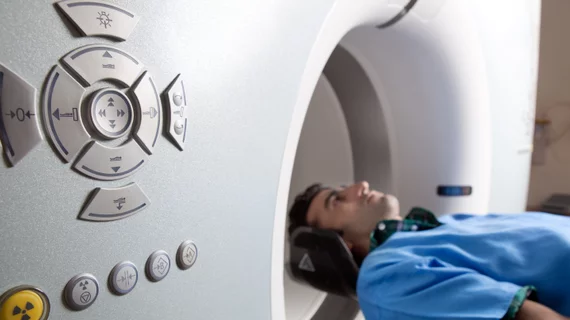A new deep learning approach lowered radiation exposure from CT imaging while producing higher quality scans compared to traditional iterative reconstruction techniques, according to research published in Nature Machine Intelligence.
The AI approach, which utilizes a modularized neural network, was also much faster than traditional methods and is easy to use in clinical practice, explained co-author Ge Wang, Rensselaer Polytechnic Institute’s Biomedical Imaging Center in Troy, New York, and colleagues.
“Radiation dose has been a significant issue for patients undergoing CT scans. Our machine learning technique is superior, or, at the very least, comparable, to the iterative techniques used in this study for enabling low-radiation dose CT,” added Wang, in a Rensselaer news release. “It’s a high-level conclusion that carries a powerful message. It’s time for machine learning to rapidly take off and, hopefully, take over.”
In their study, Wang et al. set out to compare their method against commercial iterative reconstruction techniques from three leading vendors for low-dose CT (LDCT).
The group included 60 patient scans taken from Massachusetts General Hospital in Boston; half had undergone routine abdominal CT and the remaining received a routine chest CT exam on one of three commercial scanners. Three radiologists analyzed and scored the images for two features: structural fidelity and image noise suppression.
When looking at abdominal images, the radiologists gave higher scores to images created using the modularized neural network on two of the three scanners; the third device was considered comparable to the iterative construction method. On the chest images, the readers determined image quality was comparable between both CT methods and on all devices.
According to the researchers, their study underscores the importance of pursuing deep learning for more efficient and safer imaging. Their method can work across current CT scanners of various brands and may even replace classic iterative reconstruction techniques.
“Professor Wang’s work is an excellent example of how advances in artificial intelligence, and machine and deep learning, can improve biomedical tools and practices by addressing hard problems—in this case helping to provide high-quality CT images using a lower radiation dose,” Deepak Vashishth, director of Rensselaer’s Center for Biotechnology & Interdisciplinary Studies, in the same statement. “Transformative developments from these collaborative teams will lead to more precise and personalized medicine.”
This study received funding from the National Institute of Biomedical Imaging and Bioengineering (NIBIB), part of the National Institutes of Health (NIH).

